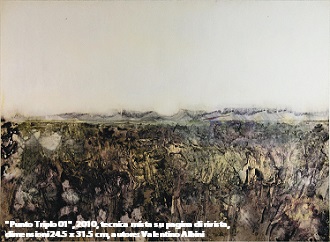“Die Affeninsel” di Robert Musil Letteratura e antropogenesi
DOI:
https://doi.org/10.13130/2035-7680/12154Parole chiave:
psicologia topologica, insight, assunti di base, dinamiche di gruppo vs esperienze individuali, processo creativo letterario, incivilimentoAbstract
Drawing on Lewin’s topological psychology as well as on Köhler’s insight learning theory the article deals with "Monkey Island". The short poetic prose presents a study on conflicting group dynamics in a small artificial island in Villa Borghese, inhabited by monkeys and apes. The article analyses inter-, intragroup behaviour and compares it with Bion’s basic assumptions as a result of including a protomental system besides Lewin’s organisational development. Along with the experimental setting "Monkey Island" also represents individuality as conflicting with group functioning so that the persecutor’s isolation is investigated as expression of individual creativity. His gaze sweeping over Rome after killing one of the helpless simians of the ditch can be connected with Musil’s experiences as a child, whose family idyll was interrupted by the presence of a stranger disputing his mother’s affection. Alongside the holistic perspective of Gestalt Musil's family experience gave him insight into the extent to which mind is inter-mind, self is inter-self. The translation of evidence-based theories into practice, now included in current research in embodied cognition, provided greatest opportunities for Musil becoming a writer. His literature is anthropogenetic inasmuch as it allows the reader to gain insight into human nature. The uniqueness of his oeuvre results in a persistent intertwining of ethics and aesthetics representing interaction between the individual and the environment in constant pursuit of coexistence.




